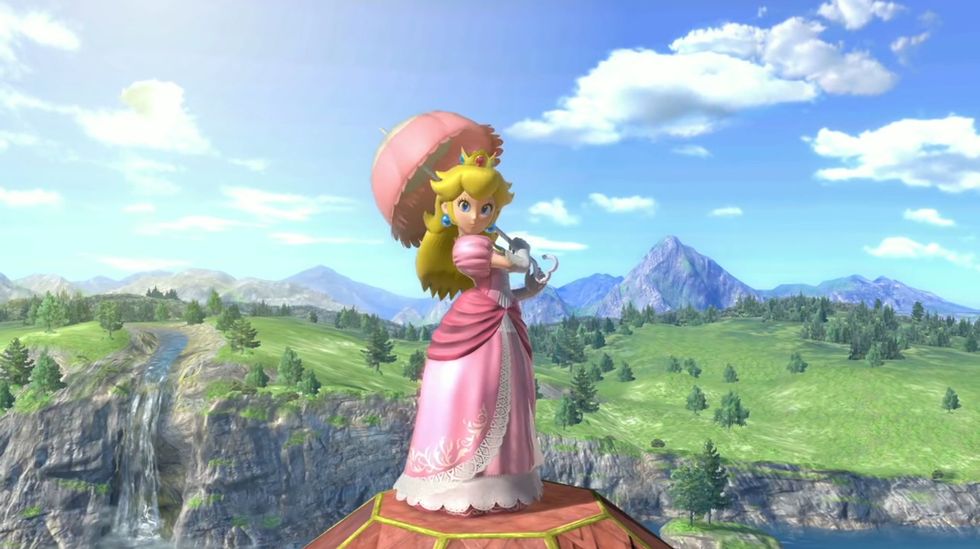The videogames I grew up with were the stereotypical “girl” games. Barbie, Disney Princess, Bratz — those were pretty much the only games I had for my pink GameBoy Advance. And while there was nothing wrong with those games and I did enjoy them, they quickly grew boring.
No matter how much young me loved Barbies, playing “Barbie” (aka the CPU) in checkers for hours quickly grew monotonous — especially because, if I’m not mistaken, you could set the CPU to easy, making an already simple game even easier.
Looking back on my early experiences with videogames, it’s no wonder that videogames have been considered a “boy’s thing.” I mean think about it. How many videogame protagonists were female back then? The only one I can think of is Samus Aran from “Metroid,” but if you see Samus in her suit, can you tell she’s female? And was “Metroid” geared towards girls the way games like “Bratz Rock Angels” were?
I never enjoyed videogames until I got my Nintendo DS and discovered “Super Princess Peach.” When I first got the game, I loved it. In a nutshell, this time Mario is the one that was kidnapped by Bowser and it is up to Princess Peach, the usual damsel-in-distress, to save him.
Peach was so badass, knocking around bad guys with her parasol and destroying things her emotions. Now, I will admit, with the advantage of hindsight, having Peach save the day with the power of PMS doesn’t send the greatest message, but it was still awesome to see that a female character could be a hero too, that action and adventure games weren’t just a “boy’s thing.”
“Super Princess Peach,” though not the most complex game (I seriously beat it in four hours the other day), was probably the game that opened the door for my love of videogames. Playing through it again got me thinking, what would gaming be like if more kids had a protagonist that they could identify with?
Let me be clear, I’m not here to make a feministfrequency outrage post about why the damsel-in-distress trope needs to die because that is honestly kind of ridiculous and I actually don’t agree with that at all. What I am saying is that representation in all media, including videogames, really does matter.
Don’t get me wrong, many of my all time favorite videogames feature male protagonists — “Kid Icarus Uprising,” “Fire Emblem,” every “The Legend of Zelda” game ever, the whole “Mario and Luigi” RPG series — but if there had been more female protagonists that I could have more easily identified with, I potentially would have discovered my love for videogames sooner.
LGBTQ+ kids deserve to have protagonists they can identify with. Kids of every racial and ethnic background deserve to have protagonists they can identify with. Children from all religions deserve to have protagonists they can identify with. Everyone deserves to have a protagonist they can identify with.
We need to show children that no matter what your background or identity is, you can be a hero too. You can go on an adventure. You can change the world. You don’t have to just be a white male.
We also need to show that people can be different by diversifying all forms of media.
Even though I grew up in the early 2000’s, diversity in media has come a long way since then. When I was little, I didn’t even know the LGBTQ+ community existed because there was very little LGBTQ+ representation in any form of media. And from what I remember from my childhood, the majority of characters in both videogames and television were white.
Now look at media today. The reboot of “DuckTales” made Gizmoduck — who is now voiced by Lin Manuel-Miranda — Latino. Princess Peach has been the damsel-in-distress less and less in many recent Mario titles. One of the main characters of “Magnus Chase and the Gods of Asgard,” Alex Fierro, is a genderfluid demigod who ends up dating Magnus at the end of the series (spoiler alert).
And those are only three examples of how much more diverse media, especially children’s media, has become.
Children not only need to see themselves in the characters on TV or in books or in videogames, but they also need to be exposed to characters from different backgrounds, especially when they wouldn’t naturally be exposed to people from those backgrounds. They need to know that it’s okay to be themselves, and that it’s okay that not everyone is like them.
We often forget just how impressionable children are. And if we don’t make the media more representative of real life, what kind of message are we sending?
If I hadn't ever been exposed to "Super Princess Peach," I would have never found that videogames can be and are enjoyable for everyone, not just boys. I would’ve just thought that videogames were a “boy’s thing.”
While yes, there are elements of the game that are admittedly problematic (the whole "fighting bad guys with crazy female mood swings" thing in particular), to younger me, seeing Princess Peach be a badass was completely and utterly awesome and inspiring. If Princess Peach could be a hero, so could I.
If one game with a female protagonist did that for me, imagine what multiple games with an LGBTQ+ protagonist or a Muslim protagonist or an African-American protagonist will do for kids.
Nobody's saying get rid of "The Legend of Zelda" or "Mario." Let's just make sure that we're developing videogames that contain protagonists from different backgrounds so kids from all backgrounds have a hero they can identify with. While we’ve gotten better, we still have a long way to go.

















